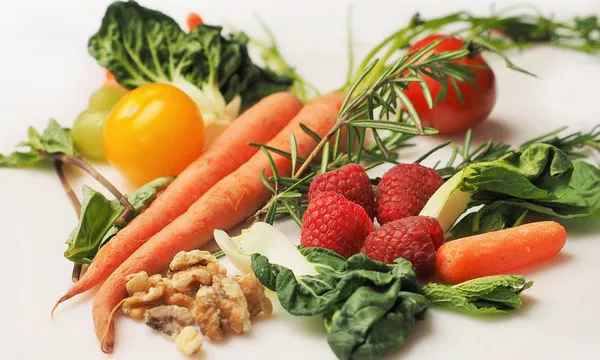Adolescence is a period of rapid growth and development, making proper nutrition essential for teenagers. Protein, a crucial macronutrient, plays a significant role in supporting the growth, repair, and maintenance of tissues. If you’re a parent or a teenager seeking to optimize your nutritional intake, you might be wondering: How much protein do teens need? In this article, we’ll delve into the importance of protein for teenagers, explore recommended protein intake, discuss sources of protein, and provide practical tips for incorporating protein-rich foods into a teenager’s diet.
The Role of Protein in Teenage Development
1. Building Blocks of Growth
Proteins are often referred to as the building blocks of life. They are essential for the growth and development of muscles, bones, skin, hair, and other tissues, making them particularly important during adolescence.
2. Hormone Production
Proteins also contribute to hormone production and regulation, helping teenagers navigate the hormonal changes that occur during puberty.
Recommended Protein Intake for Teens
1. General Guidelines
The Recommended Dietary Allowance (RDA) for protein varies based on age, gender, and activity level. For teenagers aged 14 to 18, the RDA for protein is approximately 46 to 52 grams per day for females and 52 to 61 grams per day for males.
2. Active Lifestyle Considerations
Teenagers who are physically active or involved in sports may have higher protein needs to support muscle repair and growth. Active teens should aim to include additional protein sources in their diet.
See Also: The Risks of Excessive Protein Intake: Things You Need to Know
Sources of Protein for Teenagers
1. Lean Animal Proteins
Lean animal proteins such as poultry, lean cuts of beef, pork, fish, and eggs are excellent sources of complete proteins, providing all the essential amino acids the body needs.
2. Dairy Products
Dairy products like milk, yogurt, and cheese are rich in protein and also provide essential nutrients like calcium and vitamin D for bone health.
3. Plant-Based Proteins
Plant-based protein sources include legumes (beans, lentils, chickpeas), tofu, tempeh, nuts, seeds, and whole grains. Combining different plant-based protein sources can help provide a complete range of amino acids.
See Also: 5 Protein-Rich Seeds
Practical Tips for Incorporating Protein
1. Balanced Meals
Build balanced meals that include a variety of protein sources along with vegetables, fruits, whole grains, and healthy fats. Aim for a diverse range of nutrients to support overall health.
2. Protein-Rich Snacks
Offer protein-rich snacks such as Greek yogurt, nut butter on whole-grain bread, hummus with vegetable sticks, or a handful of nuts to keep teenagers satiated between meals.
3. Breakfast Choices
Encourage protein-rich breakfast choices like scrambled eggs, yogurt parfaits with fruit and granola, or whole-grain toast with nut butter.
Protein and Weight Management
1. Satiety and Weight Control
Protein-rich foods are often more satiating, which can help teenagers feel fuller for longer and potentially contribute to better weight management.
2. Making Healthier Choices
Replacing high-calorie, low-nutrient foods with protein-rich options can support healthier eating habits and reduce the consumption of empty calories.
Hydration and Protein Utilization
Staying Hydrated
Protein utilization is enhanced when the body is properly hydrated. Encourage teenagers to drink adequate water throughout the day to support protein absorption and overall well-being.
Individual Needs and Professional Guidance
1. Varied Requirements
It’s important to note that individual protein needs can vary based on factors such as growth rate, physical activity level, metabolism, and overall health status.
2. Consulting a Healthcare Professional
If you have concerns about your teenager’s protein intake or nutritional needs, consider consulting a registered dietitian or healthcare professional. They can provide personalized recommendations based on your teenager’s unique circumstances.
See Also: 5 Groups of People Who Need More Protein
Conclusion
In conclusion, protein is a vital nutrient that plays a pivotal role in supporting the growth and development of teenagers. Ensuring that teenagers receive adequate protein intake from a variety of sources can contribute to their overall health, muscle growth, and maintenance of essential body tissues. While there are general guidelines for protein intake, individual needs may vary based on factors such as activity level and physiological requirements. By providing a well-balanced diet rich in lean animal proteins, dairy products, and plant-based sources, you can help your teenager meet their protein needs and set the foundation for a healthy and active life. As with any nutritional consideration, seeking professional guidance from a healthcare provider or registered dietitian can ensure that your teenager’s nutritional needs are met in a way that supports their unique growth and development journey.


